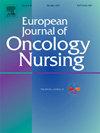盆腔放射治疗后慢性肠道症状的癌症幸存者的医疗保健服务。“……然后你就有点漂流了”:一项定性研究
IF 2.7
3区 医学
Q1 NURSING
引用次数: 0
摘要
目的盆腔放疗后常见的慢性肠道症状与生活质量的显著下降有关。对于一些人,也许是许多人来说,如果进行适当的调查和诊断,这些症状可能会得到缓解或治疗。我们从癌症幸存者和卫生专业人员的角度探讨了盆腔放疗后慢性肠道症状患者获得卫生服务和提供支持的经验。我们的目的是强调可能阻碍获得有效支持和治疗的过程和背景因素。方法对28例有放疗后慢性肠道症状的癌症幸存者(14例女性)和19名参与此类患者护理的卫生专业人员进行半结构化访谈。招聘是通过三家NHS医院、癌症慈善机构和专业网络进行的。数据进行了主题分析、演绎分析(以治疗途径模型(MPT)为指导)和归纳分析。结果我们围绕三个总体主题组织数据,定位MPT事件序列中的经验或描述卫生系统因素。对癌症治疗的感激、尴尬和对症状的接受导致幸存者不寻求进一步的治疗。卫生专业人员不能识别症状或只关注癌症复发,这对那些寻求有效治疗的人来说是障碍。系统障碍包括独立工作的专业人员和在提供后效服务方面的地域差异。结论研究结果表明,需要提高患者和卫生专业人员对盆腔放疗的后期效应的认识,包括对症状的认识、对治疗和支持的认识,并加快在全国范围内获得专业的后期效应服务。本文章由计算机程序翻译,如有差异,请以英文原文为准。
Healthcare provision for cancer survivors with chronic bowel symptoms post pelvic radiotherapy. “… and then you're kind of cast adrift”: A qualitative study
Purpose
Chronic bowel symptoms are common late-effects of pelvic radiotherapy associated with significantly decreased quality-of-life. For some, perhaps many, people these symptoms may be mitigated or treated, if appropriately investigated and diagnosed. We explored experiences of health service access and provision of support for people with chronic bowel symptoms after pelvic radiotherapy, from the perspectives of cancer survivors and health professionals. Our aim was to highlight processes and contextual factors that may hinder access to effective support and treatment.
Methods
We carried out semi-structured interviews with 28 cancer survivors (14 female) with experience of post-radiotherapy, chronic bowel symptoms, and 19 health professionals involved in the care of such patients. Recruitment was through three NHS hospitals, cancer charities and professional networks. Data were analysed thematically, deductively (guided by the Model of Pathways to Treatment (MPT)) and inductively.
Results
We organised data around three overarching themes positioning experiences within MPT's event sequence or describing health system factor. Gratitude for treatment of cancer, embarrassment and acceptance of symptoms led survivors not to seek further care. Health professionals not recognising symptoms or focusing only on discounting cancer recurrence were barriers to effective care for those who sought it. System barriers included professional specialities working in isolation and geographical disparity in availability of late-effects services.
Conclusions
Our findings suggest a need for raising awareness of late-effects of pelvic-radiotherapy among patients and health professionals encompassing recognition of symptoms and awareness of treatments and support and for accelerating access to specialist late-effects services nationally.
求助全文
通过发布文献求助,成功后即可免费获取论文全文。
去求助
来源期刊
CiteScore
4.40
自引率
3.60%
发文量
109
审稿时长
57 days
期刊介绍:
The European Journal of Oncology Nursing is an international journal which publishes research of direct relevance to patient care, nurse education, management and policy development. EJON is proud to be the official journal of the European Oncology Nursing Society.
The journal publishes the following types of papers:
• Original research articles
• Review articles

 求助内容:
求助内容: 应助结果提醒方式:
应助结果提醒方式:


